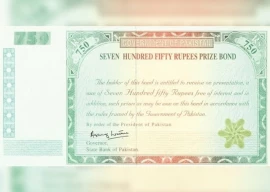
Responsibility for checking food quality falls on federal and provincial food authority departments. The federal government needs to be proactive on a macro-economic level by implementing policies on manufacturers. Provincial food authorities need to work at ground level to ensure policies are followed by manufacturers. The former, of course, needs to be preceded by stricter policies and unregistered manufacturers should be eliminated. For example, rather than targeting only milk whitener companies and requiring them to label ‘whitener’ instead of milk, a more conclusive policy would be to prohibit all manufacturers from such false advertising. Furthermore, it is inappropriate for authorities to suggest that consumers purchase their own meters to check milk quality, that too, costing a significant percentage of what many earn on a monthly basis, around Rs2,000.
It is the lower socioeconomic classes that suffer because of loose government controls on food quality. Unable to afford quality ingredients, they opt for the most inexpensive options, be it meat, dairy or other food items, sacrificing regard for health. The argument of whether milk and meat are necessary for diet is inconclusive as non-animal sources provide the same nutrition; however, the dairy and meat industries in this country are perhaps some of the strongest and most culturally popular. Therefore, government officials have a mammoth task to phase out low-grade foodstuffs, especially for consumers from lower socioeconomic backgrounds.
Published in The Express Tribune, November 2nd, 2017.
Like Opinion & Editorial on Facebook, follow @ETOpEd on Twitter to receive all updates on all our daily pieces.


















COMMENTS
Comments are moderated and generally will be posted if they are on-topic and not abusive.
For more information, please see our Comments FAQ